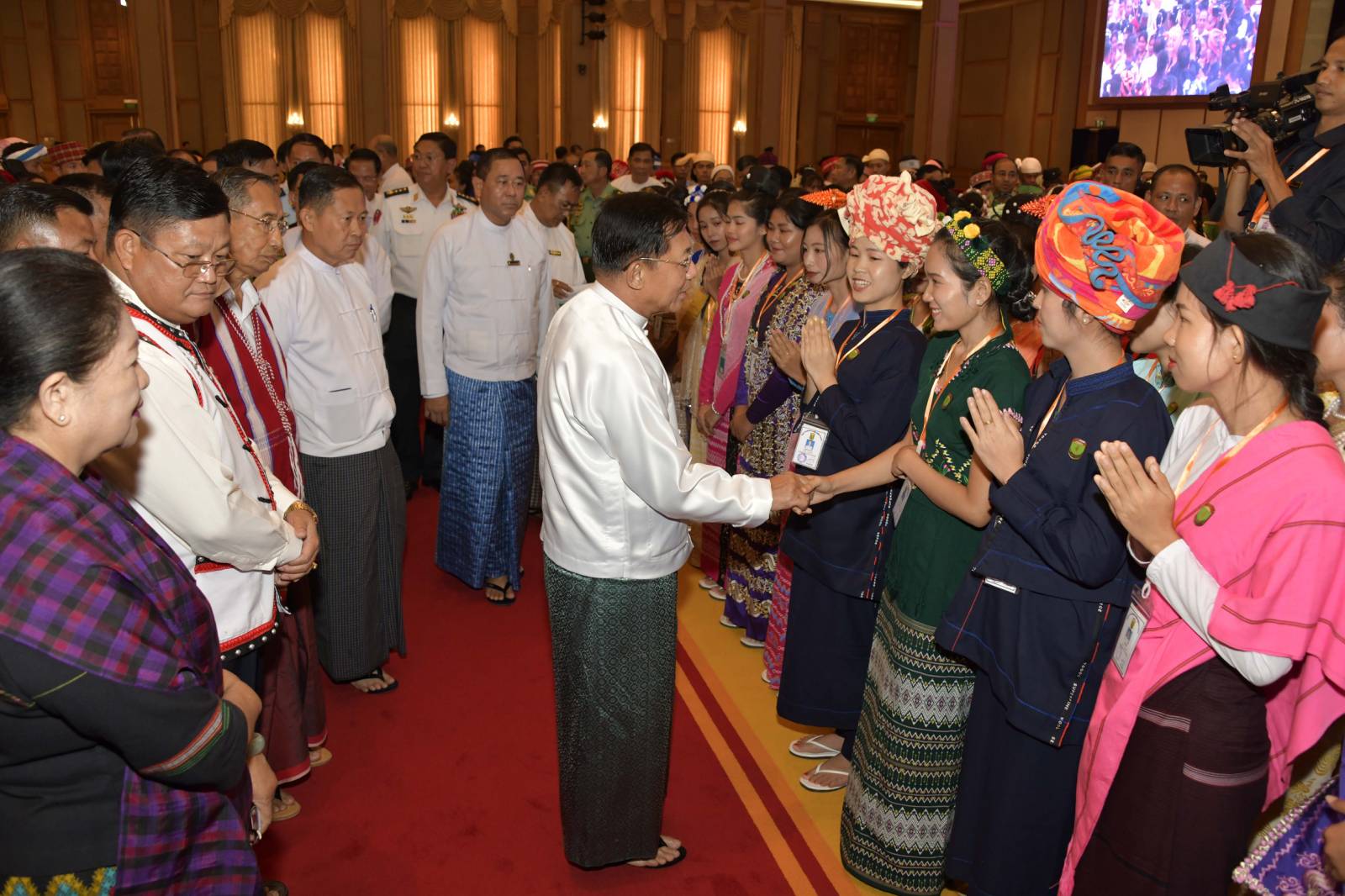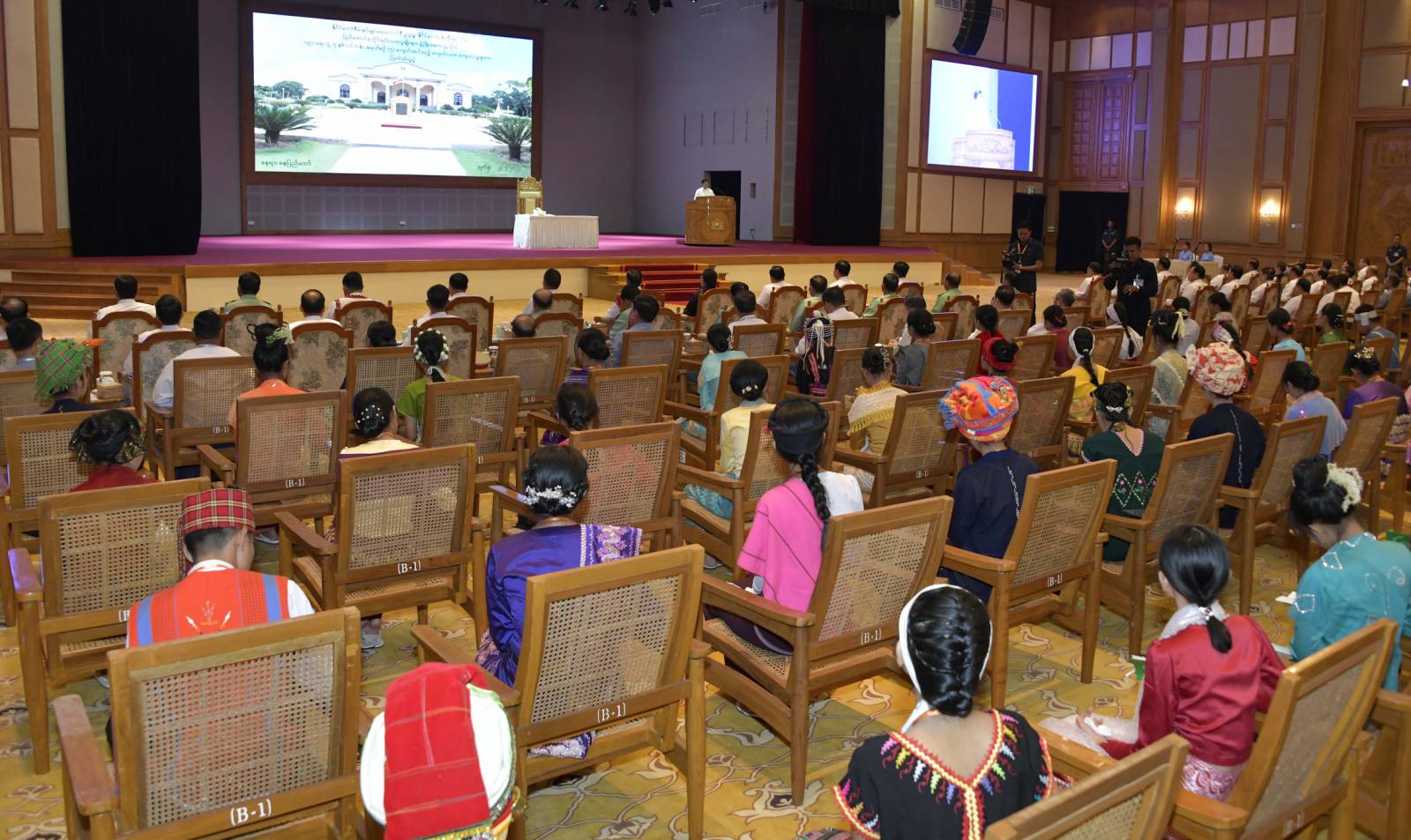CNI News
26 October 2025
Military and political observers are analyzing what preparations are necessary for all ethnic groups living in Myanmar to adopt the spirit of "We are Myanmar."
On October 21, 2025, Chairman of the State Security and Peace Commission, Senior General Min Aung Hlaing stated that ethnic nationalities need to adopt the "Myanmar spirit" and the sentiment of "We are Myanmar"—a united, cohesive national spirit—and join hands to implement peace, tranquility, and development for the state.
Sai Htay Aung, Chairman of the Tai Leng (Shanni) Nationalities Development Party (TNDP), told CNI News Agency that for citizens to cultivate the "We are Myanmar" spirit, they must first have a deep love for the nation. If they have this, they can build Union solidarity and unity.
He said, "The main thing is that if they love this country, Myanmar, and work to develop it, I believe the ethnic issues can also be resolved as a subsequent benefit. For example, let's look at Japan. After World War II, they faced oppression and struggled hard to rebuild their nation. In the reconstruction process, they worked with great effort and a love for Japan, based on the spirit of 'We are Japanese.' They later climbed to become the second richest country in the world. Similarly, if we love our country now, we should work for the country's development instead of its destruction."

Senior General Min Aung Hlaing seen with youths from various ethnic groups
Military and political observers point out that since Myanmar's independence, the country has been plagued by civil war, rooted in the Panglong Agreement, making it difficult to unite the nation.
Sai Htay Aung said, "The civil wars that arose with the Panglong Agreement and independence were primarily driven by ideological attachment at first. Later, it became ethnic attachment. However, along with ethnic attachment, armed leaders, under the banner of revolting against the dictator, themselves became dictators. Therefore, if we love our country, and if we proceed with peaceful and coordinated negotiations on these issues, the country will become stable, peaceful, and developed."
U Thein Tun Oo, spokesperson for the Union Solidarity and Development Party (USDP), told CNI News Agency that in his view, Senior General Min Aung Hlaing's statement of "We are Myanmar" was intended to encourage Myanmar citizens to stand proudly and firmly as Myanmar and further enhance patriotism and national spirit.

Senior General Min Aung Hlaing seen with youths from various ethnic groups
He said, "In my opinion, I see that the Senior General made this statement to further enhance patriotism. I believe he intends for all of us, the citizens of Myanmar, to stand with pride and glory in saying 'We are Myanmar,' to keep the patriotic spirit vibrant and sharp, and to further elevate the national spirit. In reality, 'Myanmar' refers to all ethnic nationalities in Myanmar, including the Bamar people. Our state is the Republic of the Union of Myanmar. Various ethnic groups live in this state. The distinction between 'Myanmar' and 'Bamar' is not very clear. So, 'Myanmar' is often associated with 'Bamar.' Therefore, there are Bamar people, just as there are other ethnic nationalities within Myanmar. If the distinction between Myanmar and Bamar is made, it will help in terms of equal rights, equal laws, and equal governance."
Senior General Min Aung Hlaing also stated on October 21 that all citizens need to unite and collectively defend, safeguard, and maintain the Union.
Currently, since gaining independence in 1948, Myanmar has been embroiled in a civil war that continues to this day because fundamental issues such as ethnic equality, self-determination, autonomy, the establishment of a democratic state, and the formation of a federal union have not been resolved.
As a result, racial perspectives have emerged, making it difficult to build the "We are Myanmar" reality.
Military and political observers point out that Section 450 of the 2008 Constitution stipulates that the Myanmar language is the official language. Based on this provision, the Myanmar language and Myanmar words are the Bamar language and Bamar words, leading to the assumption that "Myanmar" is "Bamar." It must be considered whether such assumptions make it difficult for non-Bamar ethnic groups to accept the "We are Myanmar" situation.




